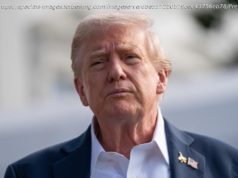 America ‘s shift toward bilateral trade deals shows a total loss of faith in the ability of multilateral forums (G7 … G20) and U. N. agencies (IMF, etc.) to rebalance the world economy through effective international policy coordination.
America ‘s shift toward bilateral trade deals shows a total loss of faith in the ability of multilateral forums (G7 … G20) and U. N. agencies (IMF, etc.) to rebalance the world economy through effective international policy coordination.
That was long time coming — a sad coda to the global economic (political) and financial order created at the Bretton Woods Conference in July 1944. It is at that time that the economic policy coordination was enshrined as one of the fundamental principles in the IMF’s Articles of Agreement, enjoining both surplus and deficit countries to balance out their external trade positions.
What followed – to this day – has been an unending comedy of errors, recriminations and hypocrisy as policy coordination and rules of a sustainable free trade were shunned in pursuit of self-serving national interests.
Predictably, surplus countries refused to adjust (i.e., to reduce their surpluses by running stronger domestic demand to boost imports), extolled their « economic virtue » and continued to live off their trade partners.
A drag on world economy
But deficit countries had no choice; they had to adjust (i.e., to reduce their deficits by shrinking their domestic demand and cutting down their imports) because they ran out of money and had to submit to foreign lenders demanding strict conditions with respect to the timing and magnitude of their trade adjustment.
And here is the world we ended up with.
Germany is currently running the world’s largest trade surplus of $300 billion. China is not very far behind with a $264 billion surplus. Japan ‘s $200 billion surplus is rapidly catching up with its large Asian neighbor, and a group of smaller export-driven East Asian countries is showing a steadily rising surplus of $300 billion.
These countries account for 40 percent of world GDP, but their combined trade surpluses of $1 trillion represent about 80 percent of the world’s total. In other words, nearly half of the world economy is a drag on the rest of the global demand, output and employment.
Do you still wonder why the world economy is stuck in a hopelessly slow lane?
With its systematic half-a-trillion dollars of quasi structural trade deficits, the U. S. accounts for 40 percent of the world’s total (trade deficits) and bears the brunt of what some would call beggar-thy-neighbor trade policies. In a more polished diplomatic « G something » language, you could also call that a « collateral damage » of uncoordinated global economic policies.
Damage it is. Over the last two years, these trade deficits have taken an entire percentage point out of America’s sluggish economic growth. Think also of the huge downward pressure on output and employment these deficits exerted, and continue to exert, in our import-competing industries.
And think of this, too. While the surplus countries keep accumulating reserves and net foreign assets by recycling the money we pay for our imports, our trade deficits got us to a huge net foreign debt of $7.8 trillion during the first three quarters of last year – a $1 trillion increase from the same period in 2015.
Stages of truth
People carping about imaginary trade wars say that this is nothing to worry about. They believe that China, Japan and the rest of « dynamic Asia » will keep lending us the money we pay for their imports, and that they will be happy to hold $2.7 trillion of our IOUs – 46 percent of the total held by foreign investors — as they did at the end of last November.
These, of course, are fairy tales. America’s trade problems are urgent and vitally important policy issues.
The irony is that the process of correcting our dangerously unsustainable foreign trade positions may also turn out to be like Schopenhauer’s three stages of truth: « First, it is ridiculed. Second, it is violently opposed. Third, it is accepted as being self-evident. »
Aha, some of my European friends tell me, yes, maybe you have a trade problem (sic), but the solutions are for you to save more and to follow the German retort to President Trump: « Produce better cars. » These Europeans thought they had a winning punch-line by repeating the mantra that « protectionism and retreating from the global trading system are not the solutions. »
Ouch, I thought, the White House bruiser got the daylight scared out of them.
America has been building and leading an increasingly free multilateral trading world for the past 70 years. For all that – partly through its own negligence – it ended up holding the bag as a dumping ground and the world’s buyer of last resort.
No more. From now on, the trade free-riders will have to deal with America’s crushing bargaining power in closely monitored and promptly terminated bilateral free-trade deals. All that, I suppose, will be based on principles of reciprocity and on the WTO trade rules.
The impact of this new trade policy should be unambiguously positive for the U. S. economy. Incoming foreign direct investments are likely to rise quickly and substantially as foreign manufacturers move to protect their American market shares. Provided due attention is paid to local content provisions, these investments would boost output and employment. The expected corporate tax adjustments would also stimulate local production by both domestic and foreign companies.
World economy should also benefit. Changing the growth model in trade surplus countries from external to domestic demand would raise growth rates through higher private consumption, business investments and public spending on infrastructure, education, healthcare and social welfare services. All the large surplus countries need this sort of policy change.
Investment thoughts
America’s new emphasis on bilateral agreements will affect the direction of global trade flows, but that need not – and probably will not – lead to falling volumes of world trade.
Of all the large surplus countries, Germany will face serious trade adjustment problems owing to strong centrifugal forces within the European Union. Berlin will also find it hard to redirect its exports from the U. S. to the sanctions-alienated Russia and an increasingly competitive and difficult Chinese market.






